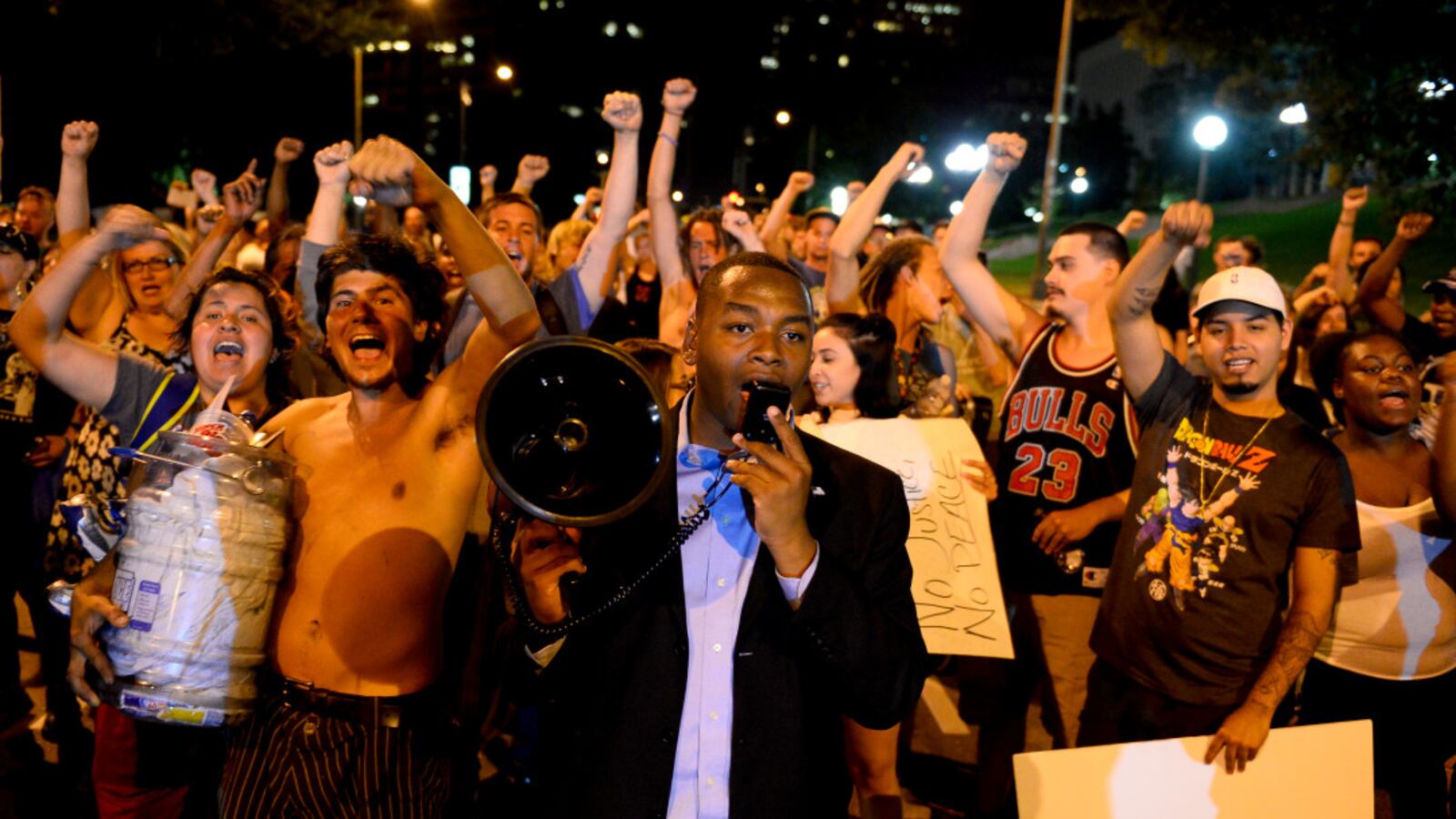On Friday afternoon, 18-year-old Tay Anderson was in Denver’s Civic Center Park, having just finished marching down the city’s 16th Street Mall. It was the second time in two days he had joined a protest in response to the recent shooting deaths of African-American men by police.
Wearing a blazer and a button-down shirt despite the midday heat, the rising Manual High senior stood out among the casually dressed crowd. Although Thursday night’s much larger rally was the first time he’d participated in such an event, Anderson didn’t hesitate to take an active role, grabbing a megaphone and leading chants of “black lives matter!”
He’s used to being a leader, having been elected Manual High’s student body president as a sophomore. Anderson is now entering his third term as president, and he has big plans for the future.
“In 2017, I’m going to run for the Board of Education in near northeast Denver to make a change,” he told us, “go to college, become a teacher, become a principal, run for mayor, then run for governor. Then I’ll decide if I want to be president.”
We asked Anderson about participating in the protests, how schools should tackle issues of race and criminal justice, and what more Denver Public Schools could be doing.
The interview has been edited for length and clarity.
Tell me about your involvement in Thursday night’s protest.
I found it on Facebook. … I came out and … I got a megaphone and I started talking. … The march started with about 150 people. We marched all the way down to LoDo and by the time we got to LoDo, we had about 400 people. People kept joining. I gave a speech and I said Martin Luther King said we needed to go to the mountaintop but we haven’t reached it just yet. When we reached the mountaintop, police brutality would end.
Did you participate in the DPS student walkouts that happened in late 2014 in response to the police shooting death of an unarmed black teenager in Ferguson, Missouri?
No, as a student body president, I couldn’t condone a walkout. Our school didn’t walk out. But I did serve on the WHY Committee — We Hear You Committee — for DPS. That was a group that was sparked after the walkouts in DPS. It was a racial and social justice group for the district. It was something for all of our students to get involved with and talk about race at a roundtable discussion with district leaders and get their voice heard.
Were those discussions successful?
I only served a short tenure but in the time that I was there, we had successful turnouts for our events and students actually came together.
What role do you think schools should play in discussions about race and justice?
Schools should be like Manual High. Our student elected leaders have had sit-downs and roundtable discussions with police officers. We played improv games with them to break barriers. We held African-American summits … and Latino heritage celebrations. Our majority is people of color. That is something that we at Manual hold dear.
Did talking to police officers change your views at all?
No, black lives still matter. We’re not free. We don’t get the dream of Martin Luther King until police brutality ends and until cops are put away for their crimes.
Does the subject of race ever come up in your classes?
It comes up in class a lot.
Can you tell me about a time when it did?
Something we talked about was, ‘Do black lives matter or do all lives matter?’ And it was a heated discussion. You have people on the other side say all humans matter. …
The N word sparked a heated discussion, too. … We run our school government like a real government, so I signed a piece of legislation that banned the N word in our school.
What kind of effect did it have?
The word rose in vocabulary and then once we stopped mentioning it, the word died. We would stop saying, ‘Don’t say that, don’t say that.’ And then it vanished.
What more could DPS be doing to address issues of race?
DPS could be doing more cultural training for their teachers, so they know more cultures and more aspects of life. Board of Education members should be trying to figure out the real issues of their schools, instead of sending a liaison out for them. DPS needs to learn who they’re representing and that we have a voice and we matter.

